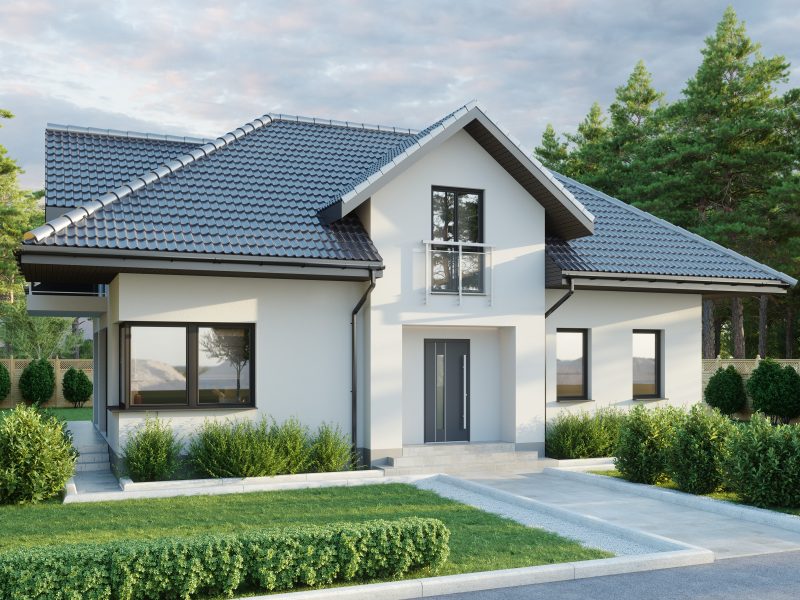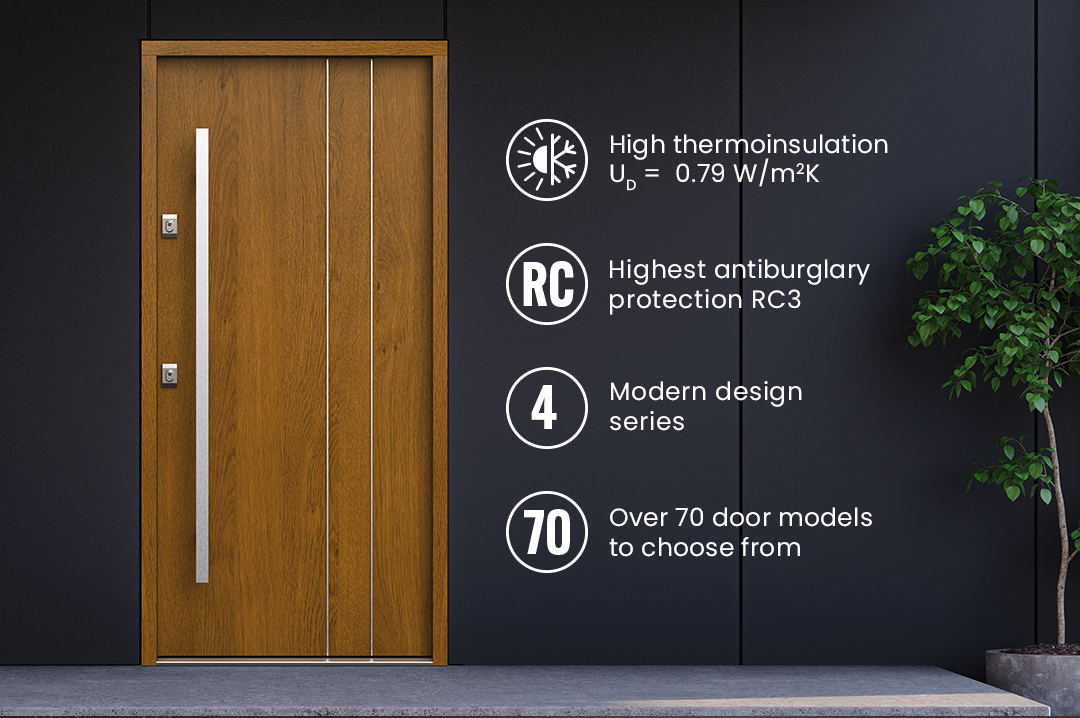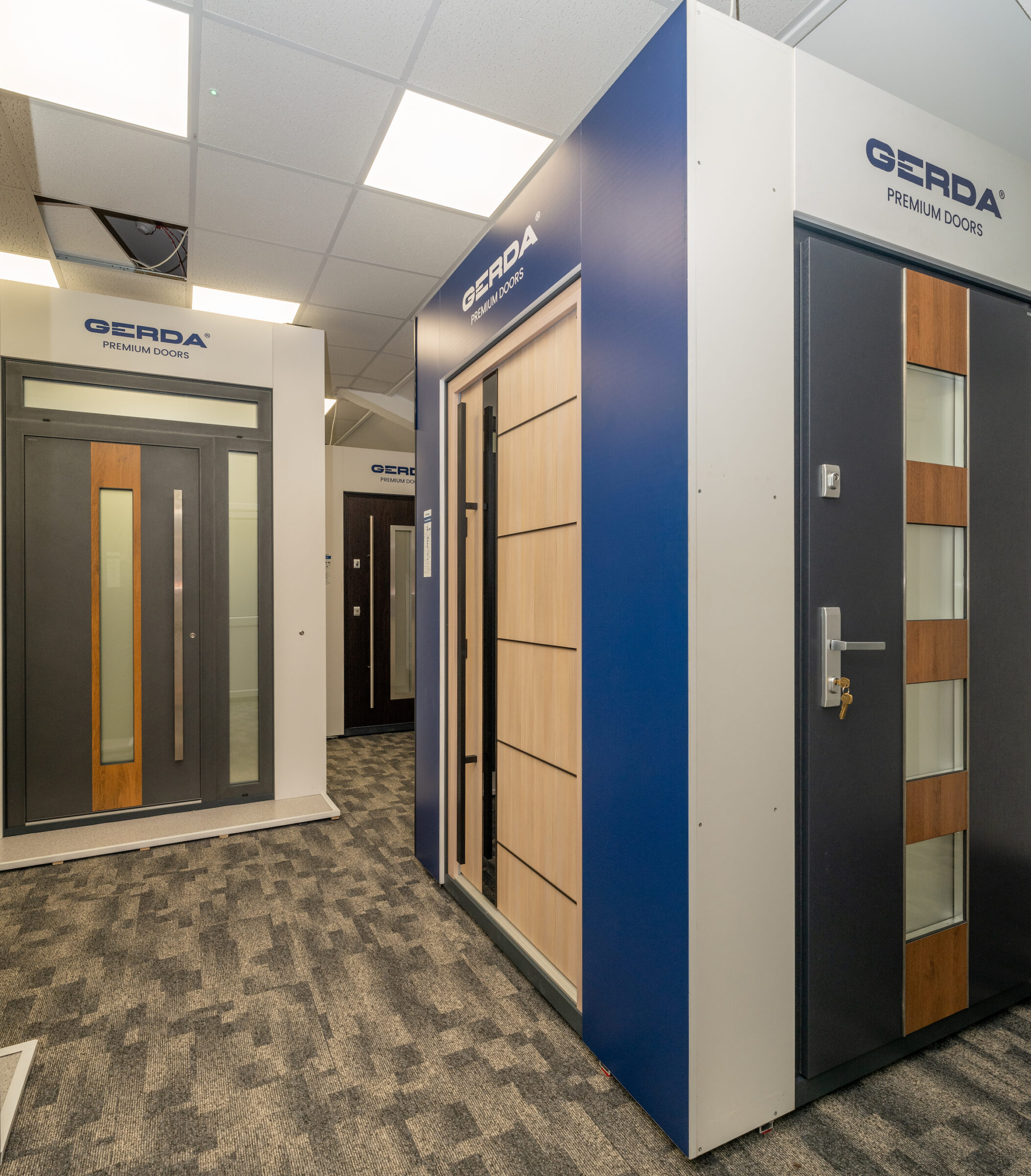Steel Aluminium Doors Vs Composite Doors?
Steel Aluminium Doors Vs Composite Doors?
When buying a new front door, you may be wondering: What distinguishes aluminium doors from composite doors? Well, composite doors are less expensive, lighter, and compatible with PVCu windows and doors already installed in other parts of the house or those that are being installed. In general, aluminium front doors are thought to be more upscale, stronger, and longer-term better investment.
Materials Comparison Between Composite and Aluminum Doors
The composition of the materials makes a difference between composite and aluminium doors. PVCu frames and door slabs with GRP skins and a foam or wood core are used in composite doors. An aluminium door’s frame, sash, and panel are all made of aluminium.
The aluminium door has the advantages of uniformity in material and colour as well as a constant profile system. The name “composite” refers to the fact that the product is typically made of a variety of materials rather than just one.
Aluminum Front Doors and Composite Doors Design
Another notable difference between composite and aluminium doors is how they appear in colour and surface finish.
While composite doors do come in modern designs, they frequently attempt to resemble wooden doors. It’s up to you whether they pull it off successfully. You can see a grained appearance to the door skin when you look at a composite door. You can spend more money on front doors made of hybrid materials and get more luxury and a long-lasting product.
The composite model’s use of cassettes to hold the glass is another obvious distinction between composite and aluminium doors. The fixings holding the cassette in place can be seen on some less expensive models, which can be unsightly. Aluminium doors have cassettes made of aluminium rather than plastic, and they simply look better.
Overall, aluminium doors have a more streamlined and consistent appearance and don’t try to imitate a wood door, though wood-effect finishes are offered. Aluminium doors have more sophisticated painting techniques that look more real because they are not impersonating another material. An advanced coating method is used to powder coat aluminium doors. Even better, these procedures must adhere to very strict quality and environmental standards.
The advantage of composite door slabs over some aluminium doors where the panel is glazed into the door sash is their flush appearance. The seamless door look is also available with aluminium for a little bit more money.
Lastly, because an aluminium door uses aluminium everywhere, the metal accents with contemporary designs combined with premium architectural handles simply look better.
Greater Panel Thickness in Aluminum Doors
The timber core composite door is a good product, but these panels typically have a door leaf thickness of up to 48 mm with a Solidor or Endurance product.
Panels up to 90mm are commonly used in aluminium doors. Enhanced insulation and a door that feels and looks more durable are the two advantages.
The difference in Thermal Expansion Between Composite and Aluminum Doors
The expansion of PVCu is roughly 2.5 times that of aluminium. As a result, PVCu doors, particularly those painted in darker colours and installed on south or sunny elevations, are vulnerable to thermal expansion. The drawbacks include stuck doors and doors that have trouble locking or properly closing. On composite doors, darker hues pose a particular problem.
It is well known that doors made of aluminium are significantly more reliable than those made of PVCu or composite materials in warmer climates because of the material’s reduced thermal expansion.
Benefits of Composite Doors
Composite doors actually outperform aluminium doors in a number of areas. To begin with, composite doors work better with traditional designs. However, some aluminium front doors, as the Smart Systems Designer Doors range, offer very good styles in aluminium. In this case, composite doors do have the advantage.
Then we have stable doors. These doors are excellent for older homes because they provide ventilation by having the top half of the door open like a window. Timber or hybrid doors are the only other options for stable doors. An aluminium door with a stable door design is not readily available.
Composite doors are a tough bargain if you want a really high-quality front door. When comparing the cost of aluminium doors versus composite doors, you can expect to pay anywhere between 40 and 60 per cent more for an aluminium mid-range model. Consequently, composite doors are better for people on a tight budget, rental properties, and homes being renovated for future sale.
Having the option to purchase a fire-rated model is one benefit of composite doors over aluminium doors. Since aluminium has no fire rating, your only options are a fire-rated steel door or an appropriate steel-clad aluminium system.
Benefits of Aluminum Doors
Aside from the benefits already mentioned in this article, aluminium front doors are superior to composite doors in additional ways.
A more high-end option for homeowners looking for a premium product is a door made of aluminium, wood, steel, a hybrid material, or another material. Even though composite doors are excellent, they have a bad reputation as being expensive.
The sizes that aluminium offers over composite doors are also noticeably better. In comparison to composite doors, they are wider and taller. The advantage of this is that in some doorways, using a composite door requires a side panel or glaze panel above and an entire door set in aluminium is an option.
The same holds true for narrower doorways. Since many older cottages require narrow doors, composite doors struggle to go below 800mm wide. Aluminium doors are a better option in this situation because many models can be made to fit openings as narrow as 400mm.
Aluminum is the preferred material for modern doors, whereas composite doors are better for traditional designs. You can see how much better aluminium doors appear in the modern style by contrasting the two products side by side. smaller or even hidden hinges, striking door handles with architectural quality, metal strips, and contemporary glass. In an aluminium door, all these features simply function and appear better.
It’s life expectancy that matters most. Aluminium front doors will last longer than composite doors with only routine cleaning and, if necessary, periodic adjustment. Of course, there are differences in the quality and cost of composite doors, but consider the faded front doors on many newly constructed homes that use composite materials.
Security of Composite and Aluminum Doors
The good news is that both door types offer superior security, high-quality hardware, secure door cylinders, and multi-point locking.
There is little cause for concern regarding front door security since both composite and aluminium doors pass the same security testing procedures.
A Comparison Between Composite and Aluminum Doors’ Energy Efficiency
The U-Values you obtain when comparing composite doors to aluminium doors depend on the panel thickness and the item. Generally speaking, composite doors have U-Values of about 1 point 6 Wm 2 K, which do meet the most recent building codes.
Aluminium panels have U-Values well below 1 point 0 Wm2K and offer ratings comparable to or better than Passivhaus doors, which are also available. The product is considered to be more energy-efficient the lower the U-Value.
Overview
Whether you select an aluminium or composite door, you will receive a safe door with a quality guarantee. Therefore, your choice may be made based on your budget or personal preferences. For more details about aluminium front door installations in your area, get in touch with Gerda Doors today!


